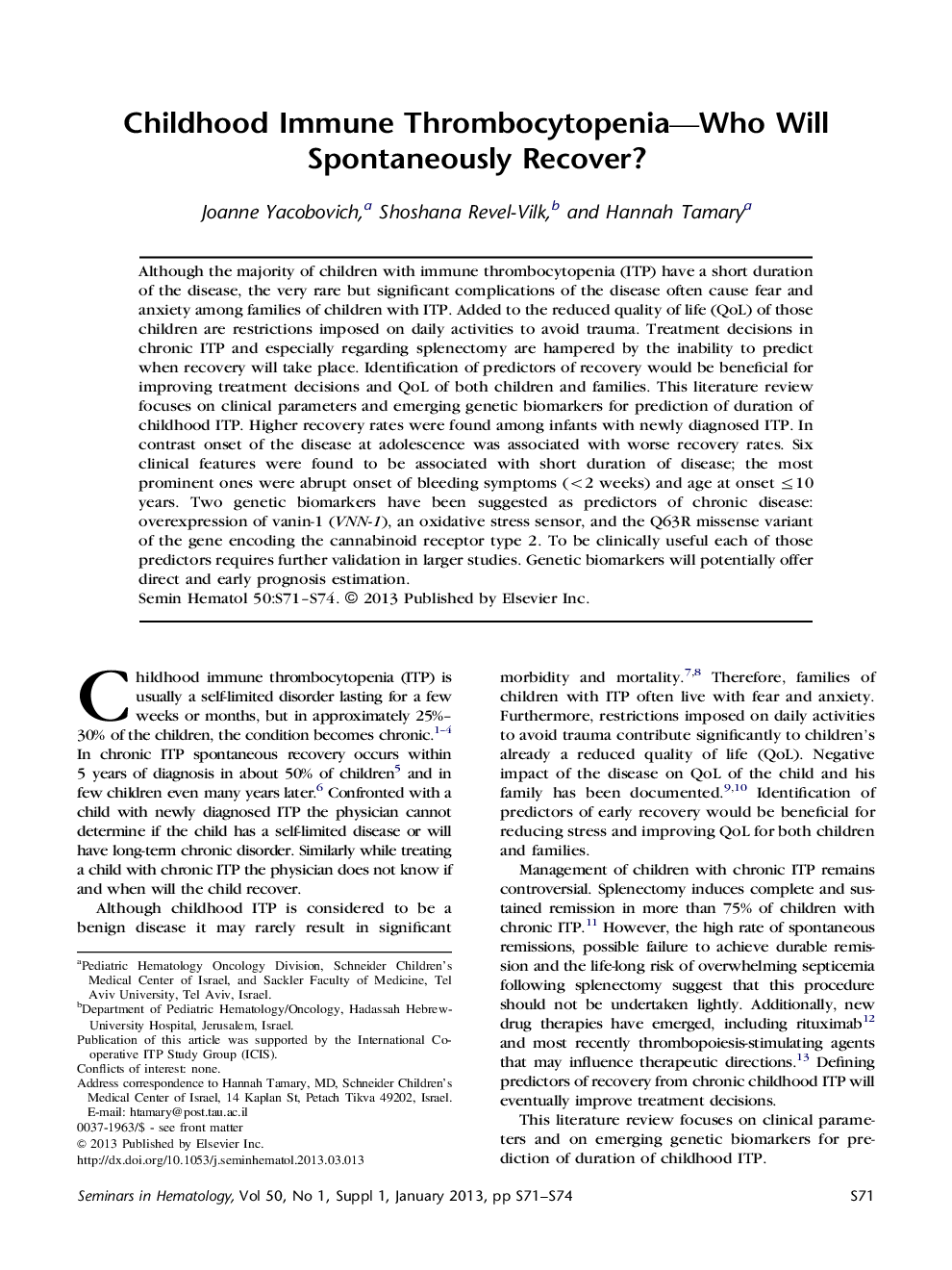| Article ID | Journal | Published Year | Pages | File Type |
|---|---|---|---|---|
| 6113823 | Seminars in Hematology | 2013 | 4 Pages |
Abstract
Although the majority of children with immune thrombocytopenia (ITP) have a short duration of the disease, the very rare but significant complications of the disease often cause fear and anxiety among families of children with ITP. Added to the reduced quality of life (QoL) of those children are restrictions imposed on daily activities to avoid trauma. Treatment decisions in chronic ITP and especially regarding splenectomy are hampered by the inability to predict when recovery will take place. Identification of predictors of recovery would be beneficial for improving treatment decisions and QoL of both children and families. This literature review focuses on clinical parameters and emerging genetic biomarkers for prediction of duration of childhood ITP. Higher recovery rates were found among infants with newly diagnosed ITP. In contrast onset of the disease at adolescence was associated with worse recovery rates. Six clinical features were found to be associated with short duration of disease; the most prominent ones were abrupt onset of bleeding symptoms (<2 weeks) and age at onsetâ¤10 years. Two genetic biomarkers have been suggested as predictors of chronic disease: overexpression of vanin-1 (VNN-1), an oxidative stress sensor, and the Q63R missense variant of the gene encoding the cannabinoid receptor type 2. To be clinically useful each of those predictors requires further validation in larger studies. Genetic biomarkers will potentially offer direct and early prognosis estimation.
Related Topics
Health Sciences
Medicine and Dentistry
Hematology
Authors
Joanne Yacobovich, Shoshana Revel-Vilk, Hannah Tamary,
